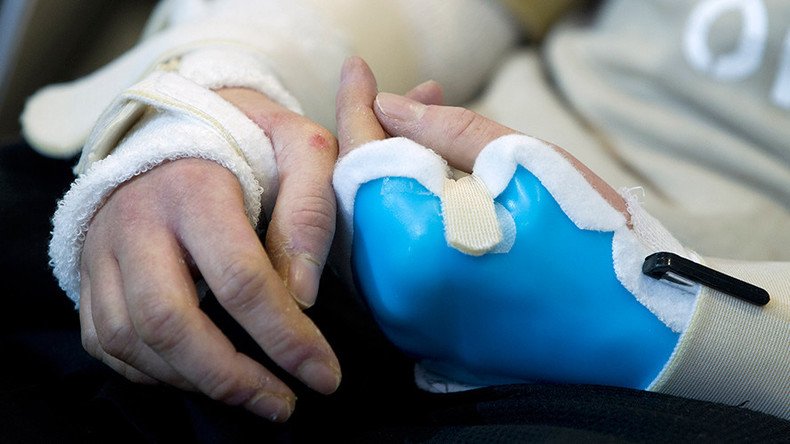Hand transplants will be offered on the National Health Service (NHS) for the first time, it has been announced.
The highly complex procedure, which is considered a surgical breakthrough, will be available from April at Leeds General Infirmary.
Patients who have lost a hand, usually from sepsis, an industrial accident, car crash or accident involving fire or glass, will receive a new hand from someone who has died.
If the operation is successful, the new hand will able to sense it surroundings, feel temperature changes and touch.
The operations take between six and 12 hours depending on the difficulty of the case and cost an estimated £50,000 each. NHS England estimates that up to four patients will have the surgery each year.
NHS England’s director of specialized commissioning Jonathan Fielden said the procedure will only be for patients who meet a strict criteria.
“The NHS is leading the world in offering this cutting-edge procedure, which has been shown to significantly improve the quality of life for patients who meet the strict criteria.”
The operations will be led by consultant plastic surgeon Professor Simon Kay in conjunction with the Leeds teaching hospitals NHS trust. Kay performed the UK’s first hand transplant in 2012, the only operation of its kind to date.
“We are delighted to be confirmed as the provider of this new service,” he said.
“The team here at Leeds is keen to now assess new patient referrals and benefit patients and their families in a way they may never have thought possible before.”
Former pub landlord Mark Cahill from West Yorkshire was unable to use his right hand after it was affected by gout. Since the transplant, he has regained almost complete use of his hand and is able to tie his shoelaces, drive a car and carry his granddaughter.
“My experience as a patient and my quality of life since the hand transplant has been fantastic. It really has transformed my life,” Cahill said.
Eighty hand transplants have been carried out worldwide.
According to data from the International Registry for Hand and Composite Tissue Transplantation, most recipients were happy after their surgery.
Two in five said the results were “excellent,” 53 percent said “good” and 7 percent rated the outcome as “fair” – there were no negative scores.
As a result of the transplant, recipients retain the fingerprints of their donors. The new limb must match the patient in terms of their skin tone, arm size, blood type and immunology.
Before being accepted for the procedure, patients have to go through extensive psychological screening to ensure they can cope with seeing a stranger’s hands at the end of their arms.
The first stage of the procedure involves two bones in the upper arm being attached with each other with metal plates and screws. The surgeons then connect key tendons, muscles and blood vessels, including the main arteries in the upper arm.
When blood circulates to the limb, the remaining nerves, tendons and muscles are attached before the skin is closed.

